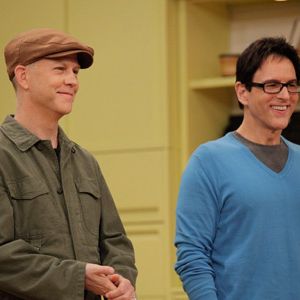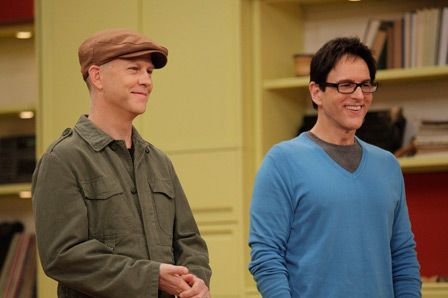

SundayÔÇÖs finale of the winning Glee Project crowned two winners, two sorta winners, and a whole nation of devotees to choreographer and judge Zach Woodlee. (Call us, Zach! Call us.) But over the last nine weeks, while wannabe cast members sang and danced their hearts out, The Glee Project wound up being an inadvertent how-to guide for its parent series and not just a reality contest show. The casting process on TGP illuminated what makes Glee work, and what makes it falter. Here are three important lessons the mothership should take from its reality spawn.
Think ÔÇ£outsiderÔÇØ not ÔÇ£underdog.ÔÇØ
Each week on TGP, Ryan Murphy, who served as the reality showÔÇÖs main judge and arbiter of Glee-fulness, would talk about how Glee is about underdogs, how itÔÇÖs a show for and about underdogs, how he needs to see everyone as an underdog. Underdogs! But the winners of the show were Damian and Sam, both of whom are good-looking, well-liked, talented sweethearts. Damian was the showÔÇÖs most conventional contestant, and Sam was the showÔÇÖs front-runner from pretty early on. What TGP stumbled into, though, was each contestantÔÇÖs intense ÔÇö overwhelming, even ÔÇö desire not just to win the competition because it would be cool, but to win because they wanted to be part of something. Glee could stand to get back to that aspect of its roots, too, and focus more on the various charactersÔÇÖ need to be part of a team and less on that teamÔÇÖs seeming inability to win contests.
Bare-bones performances are ten times as powerful as big production numbers.
Each episode of TGP centered on the kids making a Glee-style music video, and then the worst performers had to do a last-chance audition for Murphy, Woodlee, and Glee casting director Robert Ulrich. Those auditions ÔÇö on a bare stage, with the performers wearing their own clothes and not dancing ÔÇö were invariably more gripping than the videos. Lindsay took heat the whole season of TGP for being a phony, but how ÔÇ£realÔÇØ can you be while recording ÔÇ£Ice Ice BabyÔÇØ mash-ups? Instead, her desperate ÔÇ£Maybe This TimeÔÇØ audition and defiant ÔÇ£Gimme GimmeÔÇØ in the finale felt real and raw and gorgeous and way better than the music-video segments that were strange at best, pornographic at worst. AlexÔÇÖs ÔÇ£And I Am Telling YouÔÇØ brought the house down, but his ÔÇ£And I Will Always I Love YouÔÇØ was even more bare and impressive. DamianÔÇÖs sweetness and SamÔÇÖs softer side came through so clearly onstage; there was none of the glitz of American Idol or effusiveness of The Voice or the faux aw-shucks of AmericaÔÇÖs Got Talent. The giant numbers, Auto-Tuned and choreographed within an inch of their lives, are part of GleeÔÇÖs DNA. But the scripted showÔÇÖs moments of glory tend to be its purest, simplest musical numbers ÔÇö think ÔÇ£DonÔÇÖt Rain on My Parade,ÔÇØ ÔÇ£For GoodÔÇØ ÔÇö and TGP just reinforced how emotional and special those scenes can be.
Teenagers are their own drama.
Glee is a campy soap, and it should never morph into anything truly earnest or even totally lifelike. (God forbid.) But it can invest a little more in the day-to-day dramas ÔÇö the unrequited crushes, the girl whoÔÇÖs mean because sheÔÇÖs insecure, the guy whoÔÇÖs way deeper than he seems. Even without the usual reality-editing high jinks, TGP got plenty of dramatic mileage from its contestantsÔÇÖ natural interactions. They ripped off bits from one another, kissed each otherÔÇÖs crushes, and accused one other of being fake, all with palpable human emotions underneath. ThereÔÇÖs enough inherent tension without layering in, say, double-agent ops for Sue Sylvester to create more ostensible drama.
TGP betrayed its roots on some levels ÔÇö how can a show about inclusion eliminate people every week? ÔÇö but the little reality show that could managed to out-Glee Glee by patiently letting its talent win people over and ending its season as one of summerÔÇÖs most darling, surprising shows. Hopefully the fictionalized singers will learn something from their real counterparts this season.

